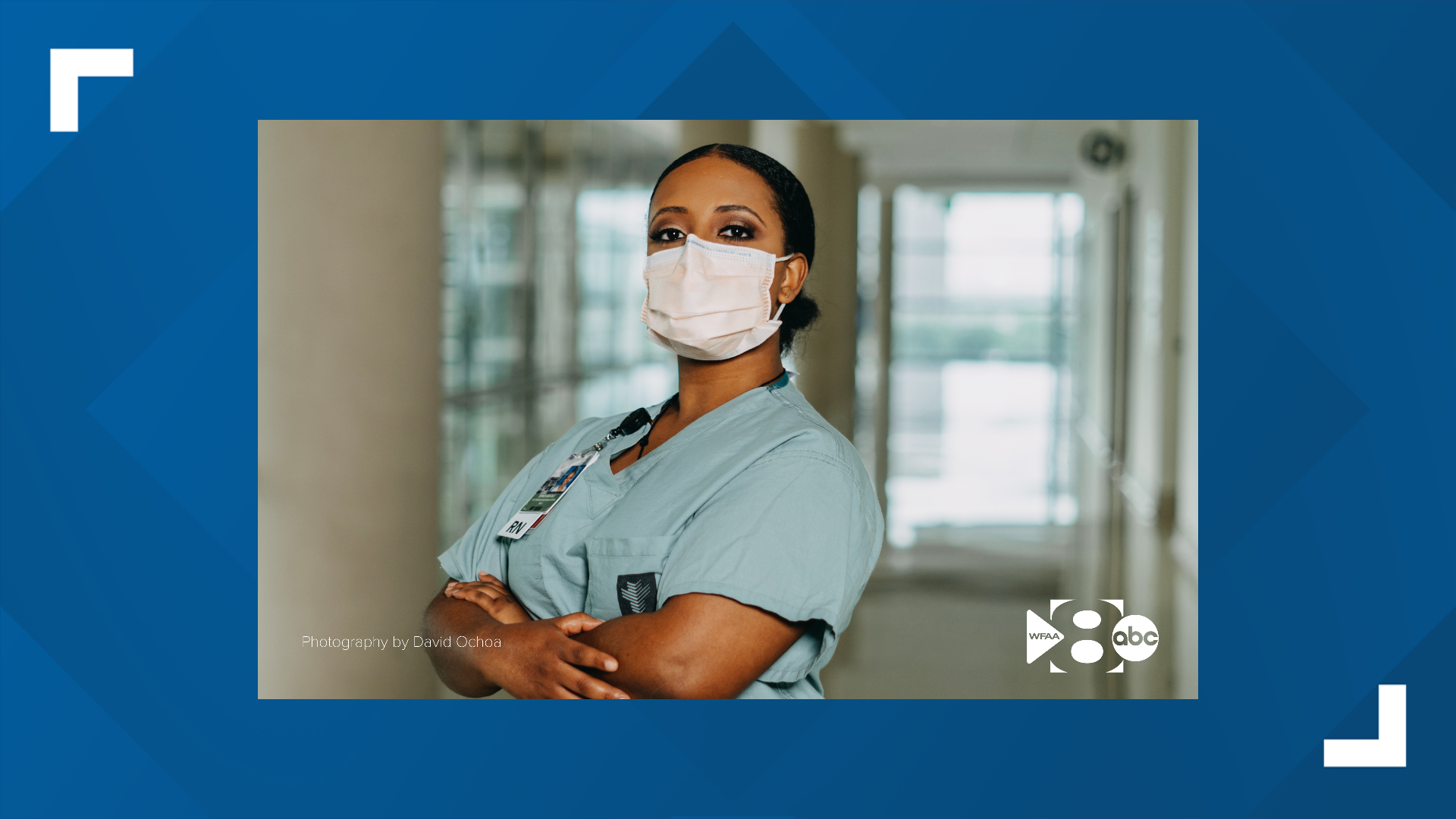DALLAS — Nurses still on the front lines of the COVID-19 fight say, yes, the flood of patients has slowed since the height of the pandemic. But, in interviews conducted months apart, nurses at Parkland Hospital still plead for us all to take basic precautions.
Near the start of the pandemic, WFAA conducted phone interviews with several nurses at Parkland. They agreed to openly discuss their concerns about the novel coronavirus.
"And I guess in the beginning I was kind of scared. Because it was so unknown," nurse Bre Ali told us back in early April.
RELATED: Inside a Texas hospital: Local nurse describes COVID-19 unit and treating critical patients
"Everybody was afraid. Including myself," nurse Yuliana Rivas Garcia admitted. "I'm not going to say I wasn't afraid."
"I'm praying that people get healed and praying that there is some kind of normalcy restored," nurse Chinwe Ononogbu said during that phone conversation months ago.
"My first thought was oh my goodness, what if I catch this? Am I going to survive?" added Ali.
"I will say when it first started I think I was mentally exhausted and I had to have a come to Jesus moment with myself and be like, 'You need to step back and go back to what you usually do,'" added Ononogbu.
But more than seven months into this pandemic, are they back to doing what they usually do?
In Zoom interviews earlier this month, the same nurses told us how they've adapted, and gave us insight into the continuing struggle with the virus.
"I've cried once or twice since this pandemic started when I've lost a patient that I've taken care of for a while," said Ali.
Ononogbu told us she is still intubating COVID-19 patients when their lungs begin to fail.
"I would say COVID is still a thing. It's still real. People are still getting sick," she said.
"It's still out there. I mean COVID is still out there. It hasn't gone away and I don't know when it's going to go away," said Yuliana Rivas Garcia, whose job still involves separating newborns from their moms, for 10 days or more, when the new mom tests positive for COVID-19.
"It's hard to tell a new mom, 'Hey, by the way, you just had a baby. It's beautiful but you cannot hold your baby. We have to take baby to make sure the baby is safe and he doesn't get the infection that you have.'"
The nurses do confirm what the numbers tell us: that difficult moments like that are on the decline. That the rate of infection, the number of COVID-19 patients arriving at places like Parkland, has slowed from its most worrisome peak.
But, even with that reality, they ask us to keep doing the little things - like wearing a mask.
"I think that if people saw the kind of patients that we see every day and how they struggle, I think people will be more willing to wear it," Ali said.
"Be careful," added Chinwe Ononogbu. "Follow the advice of people who are experienced and people who are actually dealing with it on a daily basis. And think about your family, not just yourself."
"If we stop washing hands, wearing masks, these numbers can come back up and that's the last thing that we want," added Rivas Garcia. "We must continue to be respectful toward that. I mean the last thing we want to do is to spread things by being careless."
Bre Ali, for one, still refuses to be careless. She is still choosing not to visit her 86-year-old grandmother in person, fearing she might bring the virus to her.
"Even if I was to get sick and I'll be better, the guilt of giving that disease to somebody that I love and something happening to them, I think that would be my biggest fear. If I don't do those things and something was to happen, I just would feel just terrible for the rest of my life."
Life they ask, that now seven months into this pandemic, that we would continue to value. They've seen too much struggle. Too much death. And would prefer not to have to share all these lessons, and face a resurgent virus, all over again.

